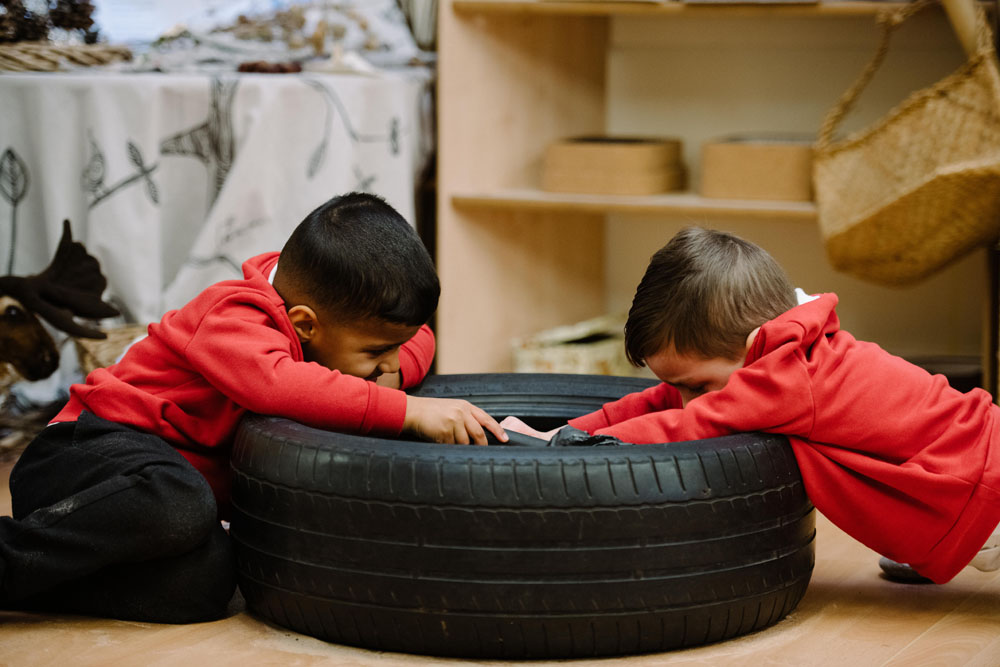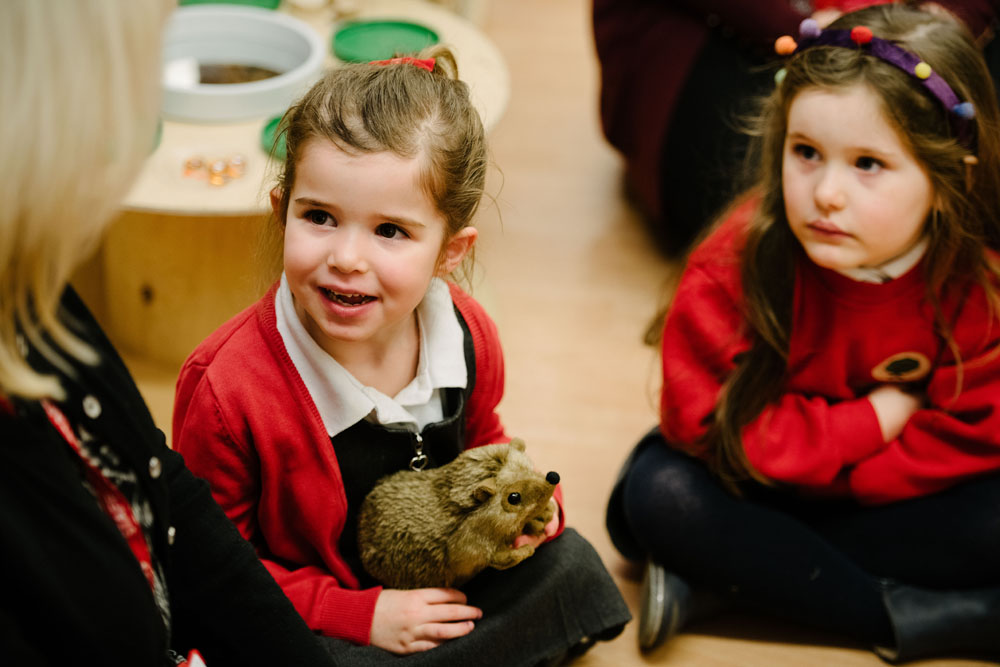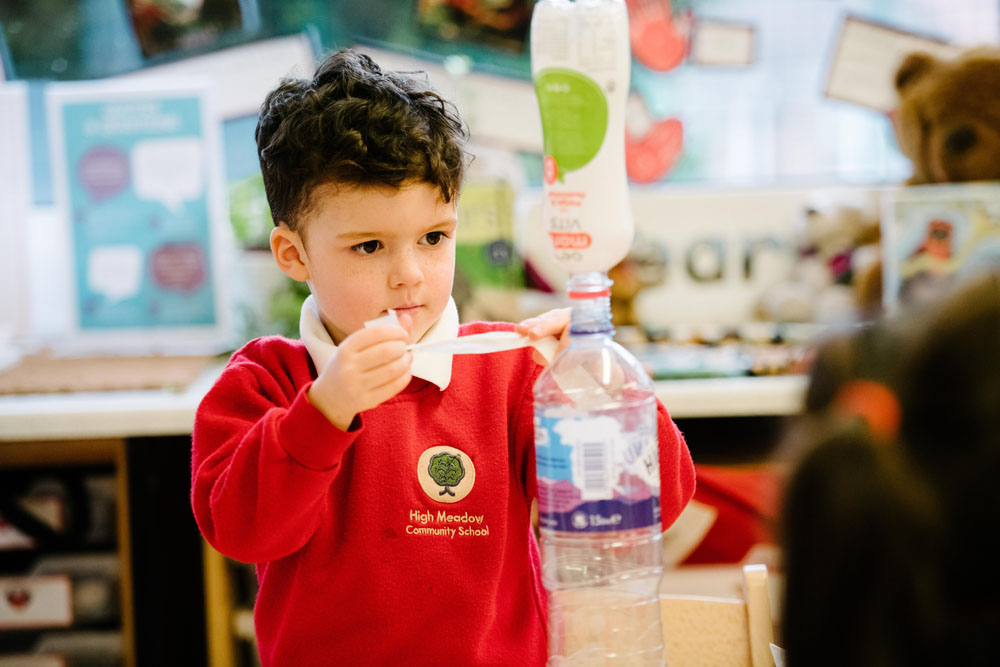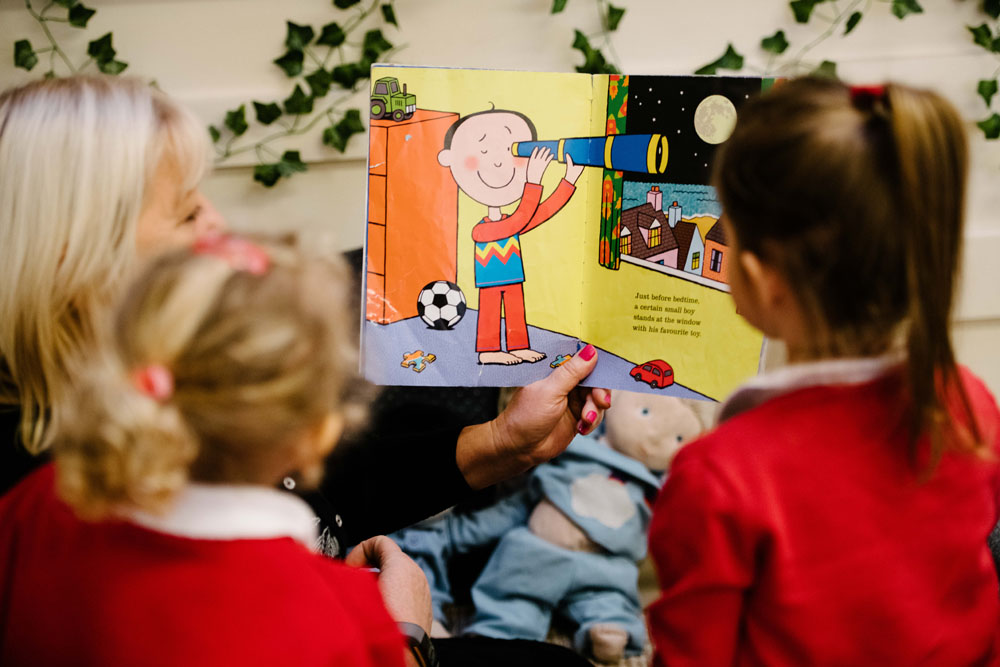Early Years Foundation Stage
The time spent in EYFS should be happy, exciting and foster a lifelong love of learning. We aim to provide an environment whereby all children will develop into independent, caring and confident individuals, aware of their own abilities and talents. We aim to promote natural curiosity and encourage children to be inquisitive about the world around them, ask questions and seek out the answers. Children learn through the means of adult-directed activities as well as child-initiated learning. At High Meadow, we believe that Nursery and Reception are the most important years in a child’s development.
Our curriculum intent for the Early Years is to provide a high-quality educational experience that lays a strong foundation for children's future learning and development. Our aim is to create a nurturing and stimulating environment where children feel safe, happy, and motivated to explore, discover, and learn in a variety of ways:
-
Holistic Development: We believe in fostering holistic development in young learners, focusing on their physical, social, emotional, and cognitive growth. Our curriculum is designed to support children in developing their self-confidence, independence, resilience, and positive relationships with peers and adults.
-
Early Learning Goals: We are committed to helping children achieve the Early Learning Goals set out in the Early Years Foundation Stage (EYFS) framework. Our curriculum is aligned with the seven areas of learning and development: communication and language, physical development, personal, social and emotional development, literacy, mathematics, understanding the world, and expressive arts and design.
-
Play-Based Learning: We recognise the importance of play in young children's learning and development. Our curriculum incorporates play-based learning experiences, where children can explore, imagine, problem-solve, and develop their creativity. We provide a rich variety of resources and opportunities for both child-initiated and adult-led play.
-
Individualised Learning: We value each child as a unique individual with their own strengths, interests, and learning styles. Our curriculum embraces a child-centred approach, allowing for individualised learning experiences that cater to each child's needs and abilities. We provide differentiated activities and support to ensure that all children make progress and reach their full potential.
-
Language and Communication: We place a strong emphasis on developing children's language and communication skills. Our curriculum includes opportunities for children to engage in rich conversations, storytelling, role-play, and language enrichment activities. We also promote the development of early literacy skills, including phonics, reading, and writing, through engaging and interactive experiences.
-
Outdoor Learning: We believe in the importance of outdoor learning experiences for young children. Our curriculum incorporates regular opportunities for children to explore and learn in our outdoor environment. We provide outdoor play areas, nature walks, gardening activities, and other outdoor experiences that promote physical development, curiosity, and an appreciation for the natural world.
-
Partnership with Parents: We recognise the vital role of parents and carers in children's early learning and development. Our curriculum encourages strong partnerships with parents, involving them in their child's learning journey. We provide regular opportunities for communication, sharing progress, and involving parents in school activities and events.
We are committed to providing a strong start to our youngest pupils; no child is left to fall behind. Early reading skills are given high importance in order to ensure children can become successful and confident learners. We are passionate about creating a curriculum that builds upon prior learning and follows the interests of the children. This is achieved through carefully planned themes, play-based learning and by highly skilled practitioners that observe and extend children’s learning experiences.
The Foundation Stage Curriculum (encompassing Nursery and Reception) is made up of seven areas of learning and development. These are divided into three prime areas and four specific areas.
The three prime areas are:
- Communication and Language
- Personal, social and emotional development
- Physical development
These are then supported by specific areas that strengthen the prime areas. The specific areas are:
- Literacy
- Mathematics
- Understanding the World
- Expressive Arts and Design
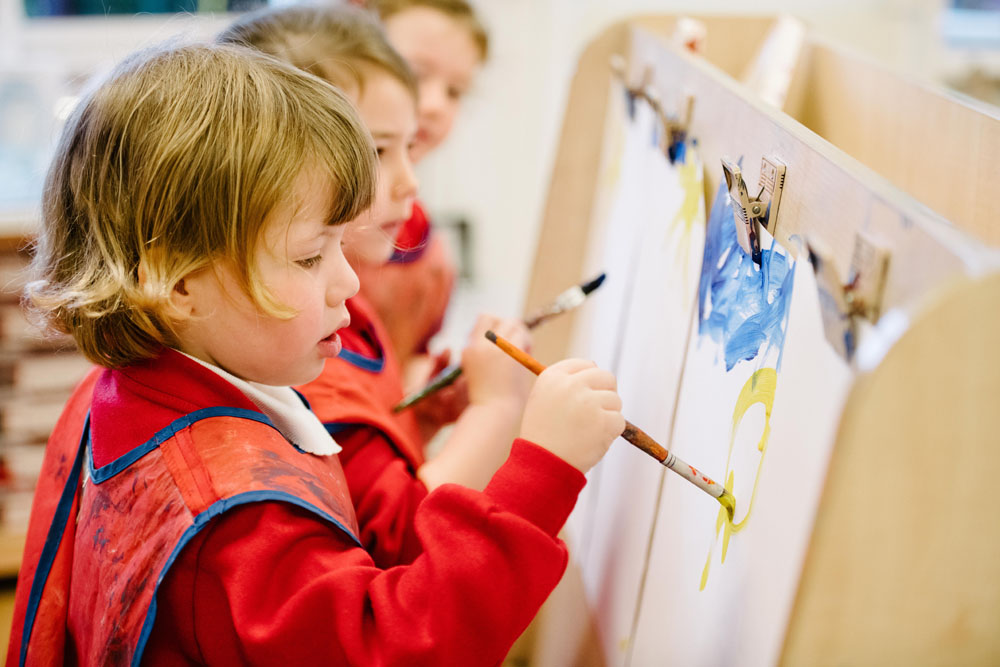
The Early Years Foundation Stage team quickly get to know the interests of individuals and groups of children and are quick to harness enthusiasm or learning in active and inspirational ways. Learning in the Early Years Foundation Stage is practical, purposeful, creatively linked, active and open-ended with visitors and visits enriching the curriculum regularly.
In our setting, a great deal of learning is initiated by the child and adults working alongside the children tirelessly to facilitate and help develop effective learning strategies such as:
- Being willing to have a go
- Being involved and concentrating
- Having their own ideas
- Choosing ways to do things
- Finding new ways
- Enjoying and achieving what they set out to do

